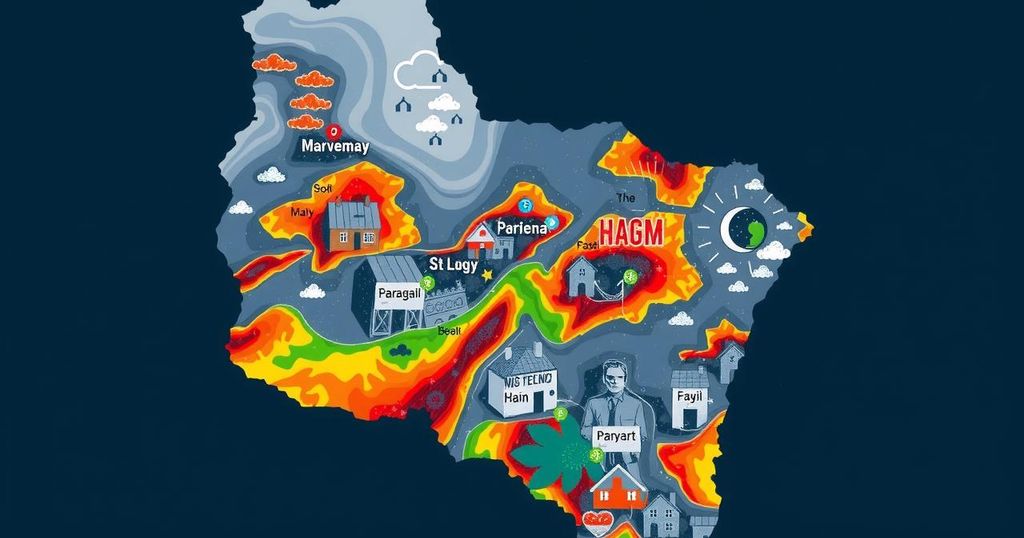Impacts of Short-Term Weather Shocks on Income and Poverty in Paraguay

This study examines the effects of short-term weather shocks on poverty and income levels in Paraguay, revealing significant impacts, particularly from heat and floods. Heat shocks decrease urban household incomes by 5% and rural incomes by 8.8%, with corresponding increases in poverty rates. Findings indicate that adaptations are needed to protect vulnerable populations, especially in rural areas.
In Paraguay, poverty alleviation efforts have stagnated since 2014, a trend that has been partially attributed to the impact of climate-related events on economic growth. This study provides an in-depth analysis of how short-term weather shocks—including heat and floods—affect income levels and exacerbate poverty among various demographic groups in Paraguay. Utilizing data from multiple sources, including the Permanent Continuous Household Survey and global climate temperature data, the research employs ordinary least squares pooled regression analysis to assess these impacts systematically. The findings reveal significant detrimental effects on household incomes due to heat shocks, which resulted in a decrease of approximately 5 percent in urban areas and up to 8.8 percent in rural regions. Additionally, the incidence of poverty rose by 1.7 percentage points in urban locales and 4.2 percentage points in rural contexts. Flood events predominantly impacted urban households, increasing poverty by 1.9 percentage points. Vulnerabilities to these weather shocks varied by region and household characteristics; for instance, female-headed households in rural areas demonstrated heightened susceptibility to heat shocks, while families engaged in the primary sector faced the most considerable losses from both heat and drought occurrences. These results underscore the disproportionate effects of weather shocks on income and poverty levels within diverse socioeconomic strata as well as across geographical locales. This paper highlights the urgent need for targeted strategies to enhance adaptation and climate risk mitigation efforts, particularly aimed at subpopulations most vulnerable to climatic variability. By recognizing and addressing these inequities, Paraguay can begin to bolster overall resilience against the adverse effects of climate change and ultimately improve poverty outcomes for its residents.
Since 2014, Paraguay has faced challenges in its poverty reduction efforts, which can be linked to a slowdown in economic growth attributed to climate-related disruptions. While the broader impacts of climate change on economies are well-documented, the specific implications for poverty, particularly in developing countries like Paraguay, remain relatively underexplored. This research aims to fill that gap by examining the relationship between short-term weather shocks and their effects on household incomes and poverty levels among various populations within the country, offering a data-driven exploration of a pressing socio-economic issue.
The analysis indicates that short-term weather shocks significantly impact household income and poverty levels in Paraguay, with varying effects based on geographic and demographic factors. The study reveals that addressing these shocks through tailored adaptation and risk management strategies is essential for enhancing resilience among vulnerable populations. By focusing on those most affected, such as female-headed households and primary sector workers, policymakers can develop effective interventions to combat the adverse impacts of climate change and promote sustainable poverty alleviation.
Original Source: reliefweb.int






